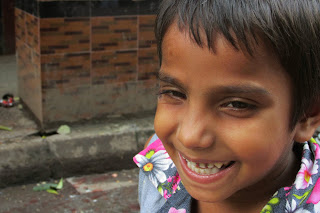The sonorous beats of fluctuating temper are crashing on the shores of infinity. Everyone needs a quivering sense of safety. One that actually shakes and makes base infirm. Stagnant waters splashed sideways and dead-centre. Unending avenues of blank blackness and wet nocturnes. And preludes to violent queasy aberrations.
Could you smell that trippy coldness? Could you see the serenity bathe under the shadows of decaying sun? Could you see the pathos lined red under the folds of musty shirts and ill-fitting brassiere? He could go hugging ancient trees and chance eunuchs. He could ask for a cheap suit and few consoling lies. He could have simply begged for caresses and touches. The crests from pangs of an isolated existence meets the low tides of late rainfalls.
The trembling yellows and oranges are closer than we think. Just as overlapped the Bageshri rag is in the fifth harmony of Barkha Ritu Aayi so is the sense of happiness and end. Or death. Bade Ghulam Ali Khan is ruthless in his meting out despair. It could be numbness on weak epidermis. It could be the nip in the colorless airs. It could be the charcoal sketch gone haywire. It could be the thin layer of impenetrable soot blocking what the spectacles wanted to see. It could be the vast sea of limitless silence on Red Road, where distant dots illuminate a receding emotion. It could be the the absence of the pressure of having to return back a reply in time. It could be the red of the taxi meter screaming and scurrying in the room of rushing montages. It could be the sensation of not having to care for anyone, care for anything and be equally careless. It could be the ability to intake low lights with brighter spirits and better hues. It could all be the rush, the rush, the cold, racy, unforgiving rush.
_________________________
A tipsy ride from Broadway down a silent darkness.
Gaje Ghata Megh.
Wind on face, ears and hair.
Could you smell that trippy coldness? Could you see the serenity bathe under the shadows of decaying sun? Could you see the pathos lined red under the folds of musty shirts and ill-fitting brassiere? He could go hugging ancient trees and chance eunuchs. He could ask for a cheap suit and few consoling lies. He could have simply begged for caresses and touches. The crests from pangs of an isolated existence meets the low tides of late rainfalls.
The trembling yellows and oranges are closer than we think. Just as overlapped the Bageshri rag is in the fifth harmony of Barkha Ritu Aayi so is the sense of happiness and end. Or death. Bade Ghulam Ali Khan is ruthless in his meting out despair. It could be numbness on weak epidermis. It could be the nip in the colorless airs. It could be the charcoal sketch gone haywire. It could be the thin layer of impenetrable soot blocking what the spectacles wanted to see. It could be the vast sea of limitless silence on Red Road, where distant dots illuminate a receding emotion. It could be the the absence of the pressure of having to return back a reply in time. It could be the red of the taxi meter screaming and scurrying in the room of rushing montages. It could be the sensation of not having to care for anyone, care for anything and be equally careless. It could be the ability to intake low lights with brighter spirits and better hues. It could all be the rush, the rush, the cold, racy, unforgiving rush.
_________________________
A tipsy ride from Broadway down a silent darkness.
Gaje Ghata Megh.
Wind on face, ears and hair.




















